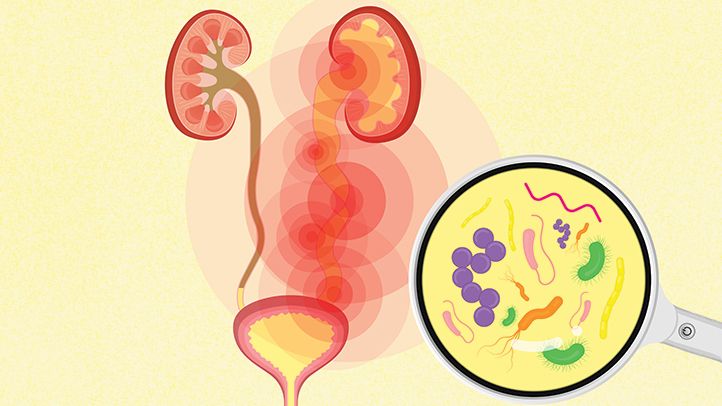Introduction
Urinary Tract Infections (UTIs) are common bacterial infections that can affect any part of the urinary system, including the kidneys, ureters, bladder, and urethra. They are more prevalent in women but can occur in men and children as well. Early detection and treatment are essential to avoid complications. Reliable diagnostic centers, such as Chughtai Lab Diagnostic, play a significant role in providing accurate and prompt UTI testing.
What is a Urinary Tract Infection (UTI)?
A UTI occurs when bacteria, typically Escherichia coli (E. coli), enter the urinary tract and begin to multiply. While most UTIs involve the lower urinary tract (the bladder and urethra), severe infections can affect the kidneys.
Types of UTIs
- Cystitis (Bladder Infection): Often caused by bacteria moving up from the urethra into the bladder.
- Urethritis (Urethra Infection): Infection of the urethra, usually due to bacteria spreading from the anus.
- Pyelonephritis (Kidney Infection): A more serious condition that affects the kidneys and can cause fever, back pain, and other severe symptoms.
Common Causes of UTIs
Several factors increase the risk of developing a UTI, including:
- Poor Hygiene: Inadequate cleaning, especially in women, can facilitate bacterial movement.
- Sexual Activity: Increases the risk of bacteria entering the urethra.
- Holding Urine: Prolonged retention of urine can lead to bacterial growth.
- Catheters: Use of urinary catheters can introduce bacteria into the urinary system.
- Weakened Immune System: Reduces the body’s ability to fight off infections.
Symptoms of a UTI
UTI symptoms can vary depending on which part of the urinary tract is affected:
- Lower Tract Symptoms (Bladder and Urethra):
- A strong, persistent urge to urinate.
- A burning sensation when urinating.
- Cloudy or strong-smelling urine.
- Pelvic pain (particularly in women).
- Upper Tract Symptoms (Kidneys):
- Fever and chills.
- Nausea or vomiting.
- Upper back or side pain.
The Importance of Timely Diagnosis
A UTI should be diagnosed as soon as possible to prevent complications like kidney damage. For reliable and efficient UTI diagnosis, Chughtai Lab Diagnostic offers high-quality testing services that ensure accurate results. Their advanced facilities and expert medical staff contribute to a timely diagnosis, helping guide effective treatment plans.
How is a UTI Diagnosed?
Diagnosis typically involves:
- Urine Sample Analysis: The most common method where a sample of urine is tested for bacteria, white blood cells, or blood.
- Urine Culture: Identifies the specific bacteria causing the infection.
- Imaging Tests: Such as ultrasounds or CT scans, used when UTIs are recurrent or to detect abnormalities in the urinary tract.
- Cystoscopy: A procedure to examine the inside of the bladder and urethra, done in more complicated cases.
Why Choose Chughtai Lab Diagnostic for UTI Testing?
Chughtai Lab Diagnostic is known for its comprehensive approach to diagnostic testing. The lab provides:
- State-of-the-Art Equipment: Ensures high accuracy in urine analysis.
- Qualified Specialists: Experienced professionals who interpret results with precision.
- Quick Turnaround Time: Helps patients begin treatment as soon as possible.
Preventing Urinary Tract Infections
While UTIs can be unpleasant, there are ways to reduce the risk of developing them:
- Stay Hydrated: Drinking plenty of fluids helps flush out bacteria.
- Practice Good Hygiene: Always wipe front to back to prevent the spread of bacteria from the anus to the urethra.
- Empty Your Bladder Regularly: Don’t hold urine for long periods.
- Avoid Irritating Products: Perfumed feminine products can irritate the urethra.
- Urinate After Intercourse: Helps to eliminate bacteria that may have entered the urethra during sexual activity.
Treatment Options for UTIs
Most UTIs are treated with antibiotics prescribed by a healthcare provider. The type and duration of antibiotic treatment depend on factors like the severity of the infection and the patient’s medical history.
- Oral Antibiotics: The standard treatment for uncomplicated UTIs.
- Intravenous Antibiotics: Used in severe cases, especially for kidney infections.
- Over-the-Counter Pain Relievers: Help manage discomfort and fever while waiting for antibiotics to take effect.
Complications of Untreated UTIs
If left untreated, UTIs can lead to severe complications, such as:
- Recurrent Infections: Multiple episodes within a short period.
- Permanent Kidney Damage: Due to an untreated kidney infection (pyelonephritis).
- Sepsis: A potentially life-threatening response to infection.
- Pregnancy Complications: UTIs during pregnancy can increase the risk of premature birth.
The Role of Regular Check-Ups
Routine check-ups can help identify recurrent UTIs or potential underlying issues. Regular visits to diagnostic facilities like Chughtai Lab Diagnostic ensure that any new infections or complications are detected early and managed promptly.
Conclusion
Urinary Tract Infections are common but should not be overlooked. Early diagnosis and treatment are essential to prevent complications. Choosing a reliable diagnostic service, such as Chughtai Lab Diagnostic, can make a significant difference in accurately diagnosing and managing UTIs. Through lifestyle changes and proper medical guidance, you can reduce the risk of infections and maintain urinary health.
FAQs
1. Can men get UTIs?
Yes, although less common, men can also develop UTIs, particularly if they have an enlarged prostate or kidney stones.
2. What is the most effective treatment for a UTI?
Antibiotics are the most effective treatment for UTIs, prescribed based on the severity and type of infection.
3. How long does it take to recover from a UTI?
Most people start feeling better within a few days of starting antibiotics, but it’s important to complete the entire course.
4. Can a UTI go away on its own?
In some cases, mild UTIs may resolve on their own, but medical treatment is recommended to prevent complications.
5. Are there natural remedies to prevent UTIs?
Drinking cranberry juice and staying hydrated can help reduce the risk of UTIs, but they should not replace medical treatment when needed.
